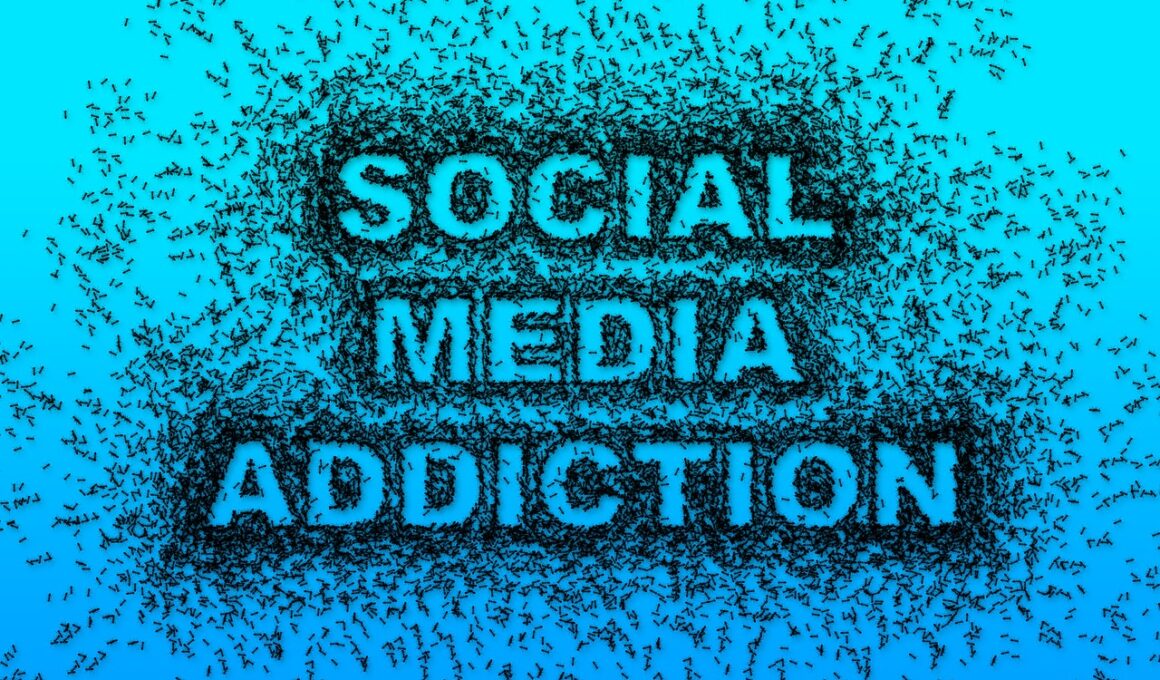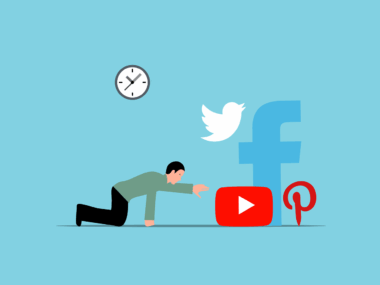The Relationship Between Mobile Social Media and Depression
Mobile social media usage has transformed how we interact. It offers a platform to share experiences and connect with others. However, this constant engagement may inadvertently foster feelings of depression and loneliness. The more users engage with these platforms, the higher their exposure to negative content becomes. Consequently, this can erode self-esteem and create an unhealthy comparison of life experiences. Users often curate idealized images of themselves, which can further deepen feelings of inadequacy. Engaging with social media while feeling vulnerable may reinforce depressive feelings. Studies suggest that high levels of social media engagement correlate with increased depressive symptoms. Conversely, taking breaks from mobile social media might alleviate these adverse effects. Seeking support through face-to-face interactions remains crucial for mental health. Additionally, understanding the contextual differences of online connections versus real-life connections is vital. In essence, while these platforms create opportunities for positive exchanges, they pose potential mental health risks. A balanced approach to mobile social media usage might be the key to maintaining a healthier mindset.
Understanding the Risks
Various risks are associated with excessive mobile social media usage. The constant barrage of information can lead to feelings of anxiety and tension. This is particularly prevalent among younger users who may find it challenging to navigate social dynamics online. It creates an environment where users continuously seek validation through likes or comments. Such validation, however, can be fleeting, leading to a cycle of dependence on social affirmation. Studies indicate that this dependency often results in decreased self-worth during low engagement periods. Cognitive distortions can also arise where users may perceive themselves as isolated, even among friends. The risk is especially significant for those already struggling with mental health conditions. Users may fall into a habit of comparing their struggles to others’ highlights, leading to distorted self-perception. Some users may also turn to social media for escapism, which can inadvertently heighten feelings of loneliness. Research emphasizes the importance of digital literacy, enabling users to recognize unhealthy patterns in their social media use. A proactive approach may involve fostering healthy boundaries around social media consumption and engaging in offline activities to bolster emotional well-being.
Exploring the relationship between mobile social media and mental health requires a nuanced understanding of how these platforms influence user behavior. Numerous studies suggest a correlation between social media habits and users’ feelings of sadness and desolation. Users often report feeling worse after scrolling through their feeds, especially if they only view edited and filtered images of others’ lives. Such behaviors can amplify feelings of isolation and inadequacy. Additionally, excessive mobile social media consumption is linked with sleep disturbances, further exacerbating mental health issues. As users prioritize online interactions, they might neglect face-to-face relationships crucial for emotional support. Numerous experts advocate establishing healthy social media habits, such as time limits on usage and being selective companions online. Additionally, encouraging positive content shares can gradually influence users’ perspectives. Engaging with uplifting messages on social platforms can contribute to improved outlook on life. Therefore, developing a healthy relationship with social media can aid users in navigating their mental health more effectively. Ultimately, users need to be conscious of their online engagement, striving towards balanced digital lifestyles that prioritize emotional well-being.
Preventive Measures for Mental Health
To mitigate the detrimental effects of mobile social media on mental health, implementing preventive measures is imperative. Establishing clear timeframes for social media use can significantly benefit emotional well-being. Users should prioritize engaging in direct human interaction, which fosters stronger emotional connections. Additionally, they can adopt mindful practices during online usage. This involves assessing feelings while engaging with social media content. If users notice negative emotions, they might consider taking breaks or unfollowing accounts that induce feelings of inadequacy. Furthermore, focusing on sharing authentic experiences rather than curated ones can promote genuineness. Support groups specifically dedicated to social media discussions can also provide valuable community reinforcement. These groups enable individuals to share their struggles and experiences, reducing feelings of isolation. Lastly, promoting digital literacy among users, especially younger audiences, teaches them more healthy engagement habits. Awareness of their mental health while using mobile social media can empower users to identify when to limit their interaction with these platforms. Thus, continually emphasizing these preventive strategies will cultivate healthier interactions in the social media landscape.
Moreover, professionals emphasize the need for society to understand the risk factors involved with mobile social media usage. Engaging in awareness campaigns can foster greater public understanding of the mental health implications that accompany excessive social media consumption. Initiatives aimed at educating users on recognizing signs of distress linked to their social media habits can empower them to seek help. Ensuring children and adolescents receive proper education regarding the responsible usage of these platforms also proves essential in building resilience against potential negative effects. Community initiatives aiming to create positive online spaces can also encourage healthier discussions surrounding mental health. These environments can provide users with support mechanisms, enabling them to feel less isolated. Building a robust support system around mental health can encourage users to openly discuss their experiences with social media. Furthermore, continuing research into the impacts of mobile social media on mental health is critical in developing effective strategies. This research can also inform curricula aimed at promoting healthy usage patterns among users. Ultimately, fostering a supportive, informed community is vital in combating the adverse effects of mobile social media.
The Future of Social Media and Mental Health
Looking forward, social media platforms must evolve to address mental health concerns associated with their usage. Companies should prioritize creating user-friendly features that foster healthier interactions. For instance, including options for setting daily usage reminders can help users manage their time effectively. Features that promote positive interactions, such as encouraging community support and gratitude sharing, can positively influence user experiences. These changes will require social media companies to collaborate with mental health professionals to develop guidelines for healthier engagement. Additionally, enhancing privacy settings can empower users to control their narratives better, reducing exposure to detrimental content. Thus, companies play a critical role in creating an online environment that supports mental health. As users become more aware of the implications of their social media activities, they can advocate for changes from these platforms. Furthermore, there is potential for integrating mental health resources within social media apps. Providing immediate access to mental health support can further encourage users to seek help when needed. In conclusion, transforming future social media landscapes requires a combined effort from users, professionals, and developers alike.
Lastly, engaging with mental health advocacy can empower those affected by mobile social media. Sharing personal experiences can inspire others facing similar challenges, fostering a sense of empowerment and unity among users. Offline community events focusing on mental health can also play a crucial part in combating social media-related issues. These events facilitate face-to-face connections, significantly enhancing users’ emotional health. Moreover, online workshops aimed at providing tools for balanced social media practices can support users in navigating their mental health effectively. The key takeaway is that mobile social media possesses both positive and negative aspects. While these platforms enable connectivity, they can also present dangers to mental health. Thus, users deserve guidance and support in managing their digital lives as they interact with broader social media landscapes. Empathy, education, and proactive strategies must shape the future of mobile social media. By embracing these methodologies, society can establish a healthier relationship with social media, enhancing overall emotional wellness. Ultimately, fostering open conversations surrounding these topics will pave the way towards understanding and contributing positively to mental health through digital platforms.
Conclusion
In summary, the intricate relationship between mobile social media and mental health continues to unfold, revealing both opportunities and challenges. Users must remain vigilant in recognizing how their social media habits impact emotional health. This awareness can promote healthier practices and enhance their mental well-being. Consequently, advocating for responsible social media use instills a culture of mindful engagement. The responsibility of nurturing mental health extends beyond users to encompass platforms themselves, encouraging them to adopt user-centered designs focusing on well-being. Bringing together users, professionals, and platforms can cultivate a supportive online environment that prioritizes emotional health. By sharing experiences, communities can encourage openness and understanding about mental health challenges. Researchers and advocates must collaborate to drive future studies that shape effective strategies aimed at improving user experience on social media. Ultimately, creating a balanced digital environment will require continued effort from all stakeholders involved. The ongoing narrative surrounding mobile social media and mental health matters deeply, ultimately shaping how individuals relate to themselves and others in a digitally dominated world.





